When your little one feels under the weather, what they eat becomes super important for recovery. The right foods can boost their immune system, provide comfort, and help them feel better faster.
These kid-friendly options combine nutrition with easy digestion to support your toddler through illness while keeping them hydrated and nourished.
1. Bone Broth
Nothing works magic like a warm cup of homemade bone broth when your little one is fighting sniffles! Packed with minerals that boost immunity, this ancient remedy delivers protein in an easily digestible form that won’t overwhelm sensitive stomachs.
The mild flavor makes it perfect for picky eaters, and you can serve it in a favorite sippy cup for extra appeal. Many pediatricians recommend it because it helps maintain hydration while providing nutrients.
2. Banana Mash
Bananas reign supreme in the sick-day food hierarchy! These yellow wonders contain potassium that helps replace electrolytes lost during illness while being gentle on irritated tummies. Their natural sweetness appeals to children even when appetites have vanished.
Mashing makes them easier to eat for tired tots. The soft texture requires minimal effort to digest, making them perfect when energy levels are low. They also contain pectin, which helps firm up loose stools if your child is experiencing tummy troubles.
3. Applesauce
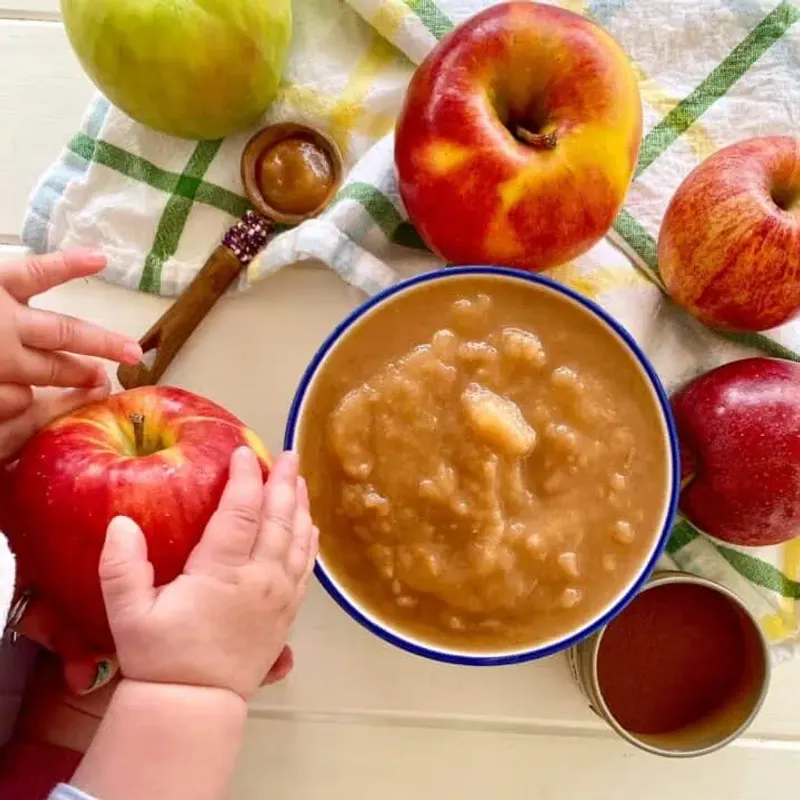
Holy fiber-filled goodness! Applesauce delivers natural sweetness without the sugar rush that might further upset a wobbly immune system. The smooth texture slides down easily when swallowing feels like climbing Mount Everest for your little patient.
Pediatricians have recommended this classic for generations because it contains pectin – a soluble fiber that helps regulate digestion. Warm it slightly for extra comfort points on chilly sick days. The natural acids can stimulate appetite when nothing else seems appealing.
4. Chicken Soup
Grandma wasn’t just spinning tales – chicken soup actually works! Scientists have confirmed what generations knew instinctively: the combination of warm broth, tender chicken bits, and soft vegetables creates an anti-inflammatory powerhouse perfect for tiny humans battling colds.
The steam helps clear congested noses while the warm liquid soothes irritated throats. Protein from the chicken supports healing muscles and tissues. For toddlers, try straining out larger pieces or blending to a consistency they can manage without frustration.
5. Greek Yogurt
Gut battles need reinforcements! Greek yogurt delivers billions of friendly bacteria that help restore digestive harmony after illness or antibiotics have wiped out the good guys. The creamy texture feels luxurious even when nothing tastes quite right.
Higher in protein than regular yogurt, it helps rebuild strength during recovery. The cool temperature can soothe sore throats and feel refreshing during fevers. Plain varieties prevent sugar overload, though a drizzle of honey (for toddlers over 12 months) can increase appeal.
6. Oatmeal
Oatmeal hugs your toddler from the inside out! This whole-grain wonder contains beta-glucans that support immune function while providing sustained energy during recovery. The soft, warm texture requires minimal chewing – perfect when your little one lacks strength.
Cook it with milk instead of water for added protein and calcium that supports growing bodies. The bland flavor makes it ideal for queasy tummies, while its versatility means you can add different toppings as appetite improves.
7. Popsicles

Fever fighters rejoice! Homemade popsicles trick reluctant drinkers into proper hydration while the cold provides blessed relief for sore throats. Unlike store-bought varieties loaded with artificial colors, DIY versions deliver electrolytes and vitamins without the junk.
Freeze diluted fruit juice, coconut water, or even pediatric electrolyte solutions for medicinal treats that feel like forbidden candy. The cold temperature can temporarily reduce pain and inflammation in raw throats. Smaller sizes prevent brain freeze and make consumption manageable.
8. Avocado
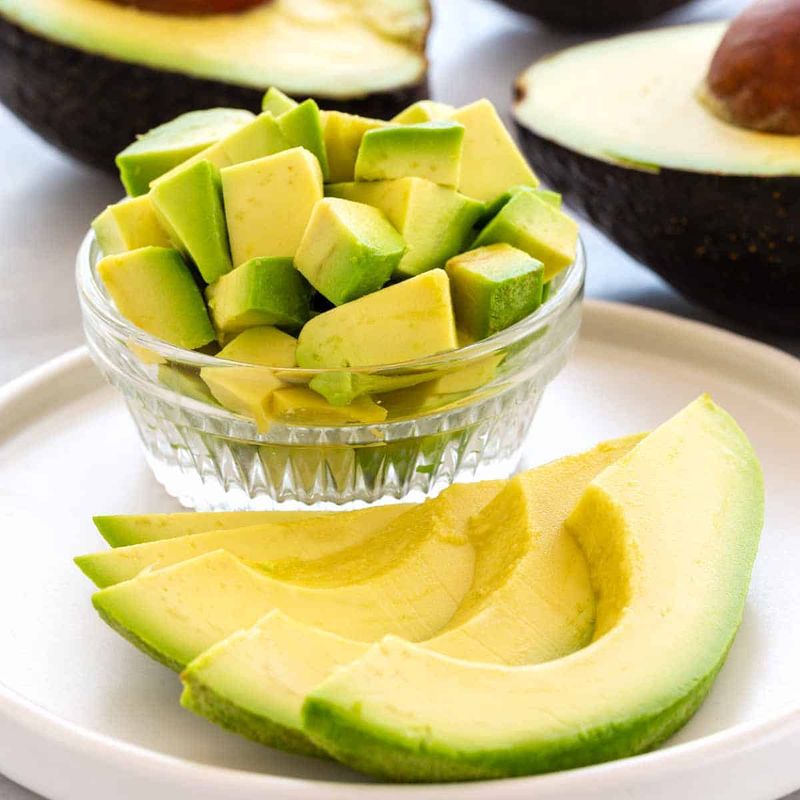
Green goodness to the rescue! Avocados deliver healthy fats that help absorb vital nutrients while their creamy texture requires zero chewing – critical when every bit of energy counts during illness. The mild flavor won’t trigger nausea like stronger foods might.
Mash it onto whole grain toast for older toddlers or serve plain with a tiny sprinkle of salt for younger ones. The monounsaturated fats support brain development even during sick days when eating is challenging. High potassium content helps replace what’s lost through sweating during fevers.
9. Toast With Honey
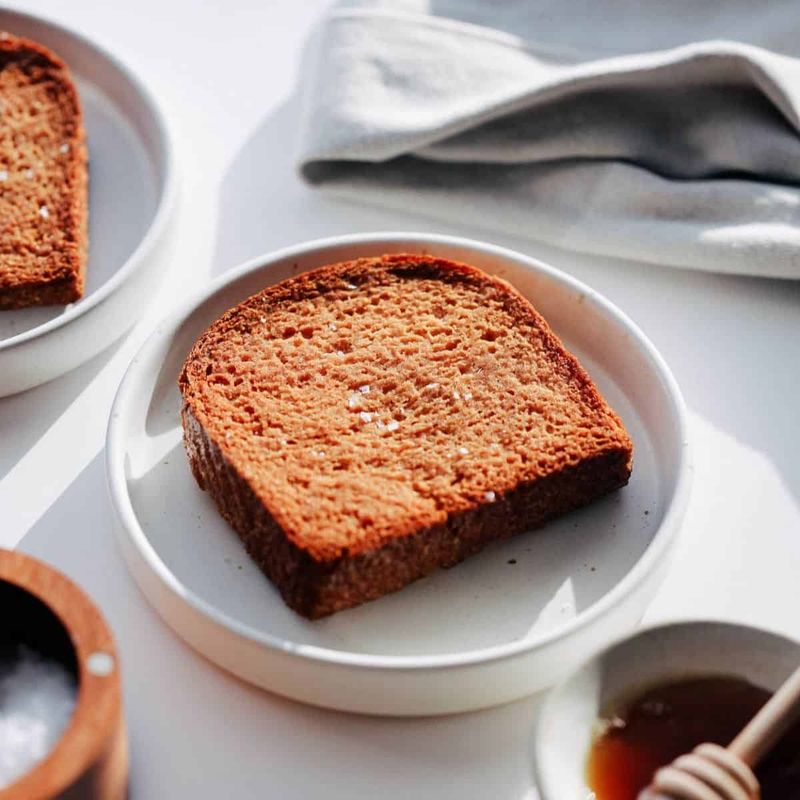
Crispy meets sticky in this ultimate sick-day classic! Lightly toasted bread provides easy-to-digest carbohydrates that fuel recovery without taxing delicate digestive systems.
A thin spread of honey (for toddlers over 12 months only!) adds natural antibacterial properties and makes plain toast irresistible. Cut into fun shapes using cookie cutters to entice reluctant eaters. The slightly rough texture can help scrape away the fuzzy feeling on tongues that often accompanies illness.
10. Smoothies
Sneaky nutrition at its finest! Smoothies allow you to pack vitamins, minerals, and hydration into one slurpable package when solid foods get the cold shoulder. The cold temperature numbs sore throats while the smooth texture slides down without triggering coughs.
Blend mild fruits like bananas or peaches with yogurt and a splash of liquid (milk, coconut water, or diluted juice). Skip acidic fruits like oranges that might irritate sore throats. A handful of spinach adds iron without detectable taste when mixed with banana.
11. Scrambled Eggs

Scrambled eggs work miracles during recovery! These protein powerhouses deliver essential amino acids that rebuild tiny bodies after illness, all in a soft package that requires minimal chewing. The mild flavor appeals even when taste buds are on strike.
Cook them soft with a little butter for easy swallowing and added calories when appetite is diminished. Chop into pea-sized pieces for younger toddlers to prevent choking. Adding a sprinkle of cheese increases calcium intake and flavor appeal without overwhelming sensitive systems.
12. Watermelon

Juicy magic in every bite! Watermelon delivers stealth hydration that’s 92% water while providing vitamin C and lycopene to boost recovery. The sweet flavor tempts even the most stubborn sick toddlers when nothing else appeals.
Cut into tiny cubes for easy handling and minimal choking risk. The cool temperature feels soothing during fevers without being as cold as ice or popsicles. Seedless varieties eliminate extra work for exhausted parents and potential choking hazards for tired toddlers.
13. Rice

Bland becomes beautiful when tummies revolt! Plain white rice provides easily digestible carbohydrates that won’t irritate inflamed digestive systems. The binding properties help solidify loose stools during recovery from stomach bugs.
Cook it slightly longer than normal with extra water for a softer texture that requires minimal digestion. A tiny bit of butter adds calories and appeal without challenging recovering systems. Avoid brown rice during illness – its extra fiber can be too much for irritated intestines.
14. Mashed Potatoes

Mashed potato magic works wonders for sick kiddos! This ultimate comfort food delivers easy-to-digest carbohydrates with enough substance to feel like a “real meal” when appetite begins returning. The soft, creamy texture requires zero chewing – perfect for exhausted little bodies.
Make them with milk for added protein and calcium, keeping seasonings minimal. The bland flavor won’t trigger nausea while still providing satisfying mouthfeel. Serve lukewarm rather than hot to protect sensitive mouths and allow immediate consumption.
15. Diluted Apple Juice

Desperate times call for sippy cup diplomacy! When water gets rejected, diluted apple juice becomes your secret weapon against dehydration. The subtle sweetness entices reluctant drinkers while the familiar flavor provides comfort during uncomfortable days.
Mix one part juice with three parts water to prevent the sugar concentration that can worsen diarrhea. Serve at room temperature or slightly cool rather than cold to prevent shocking sensitive systems. Small, frequent sips work better than pushing large amounts.

